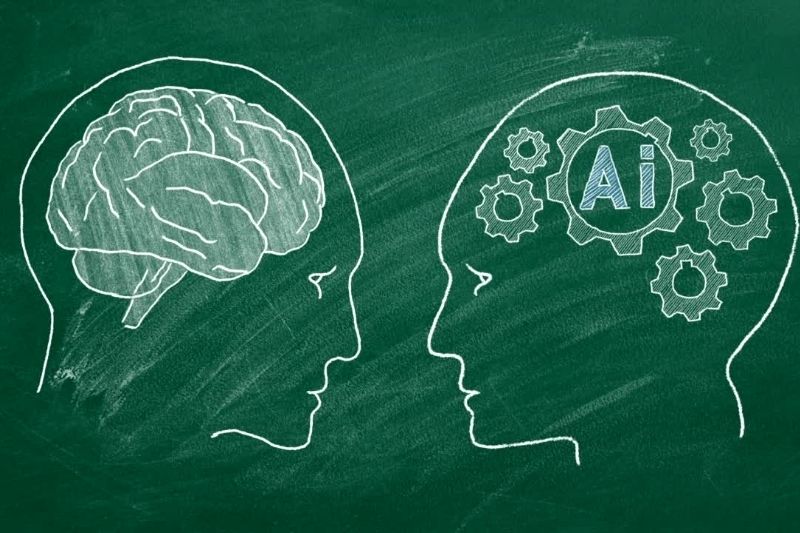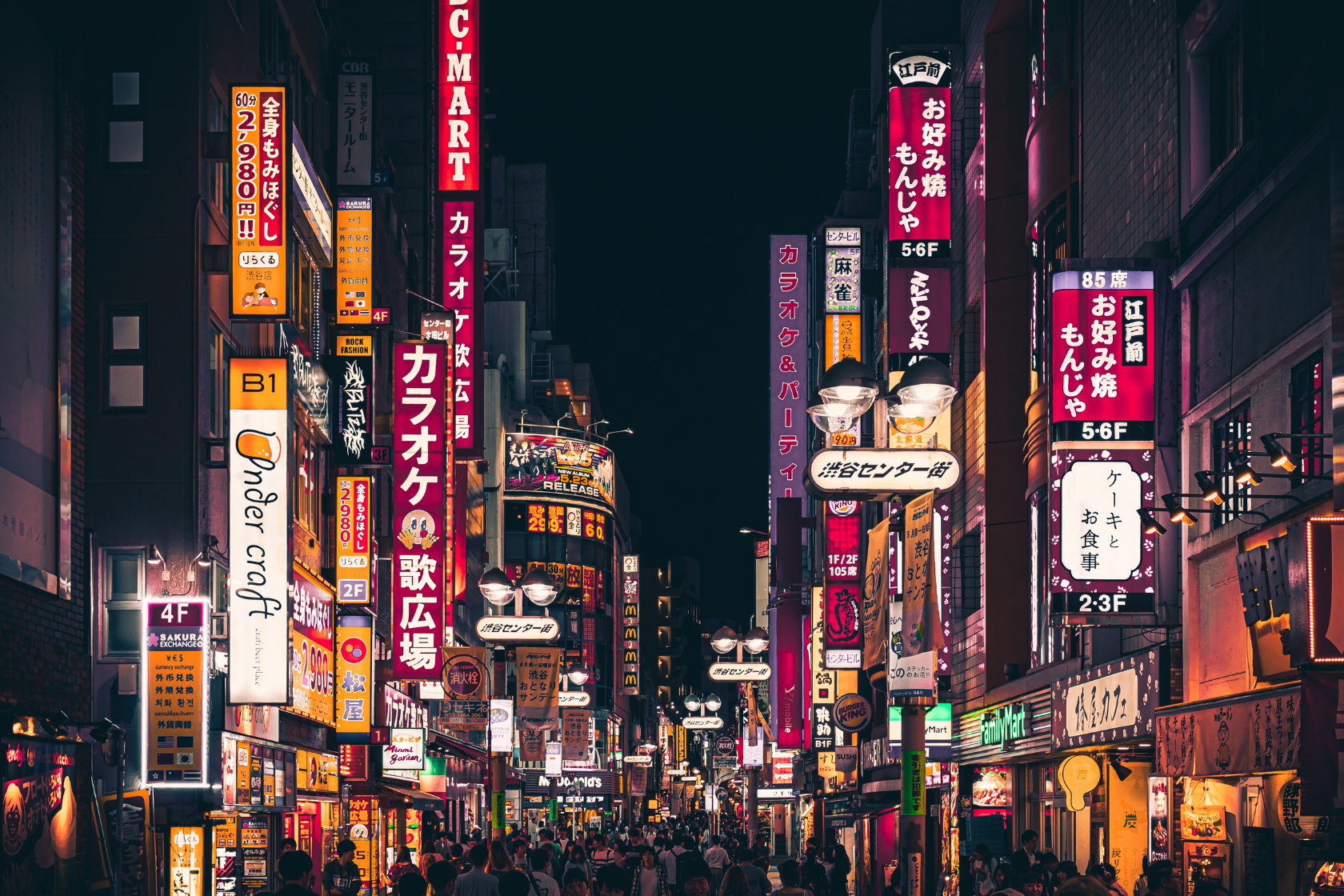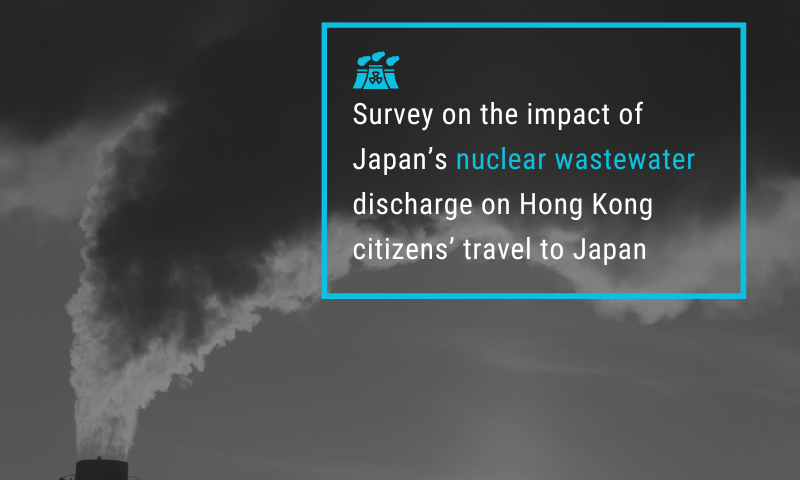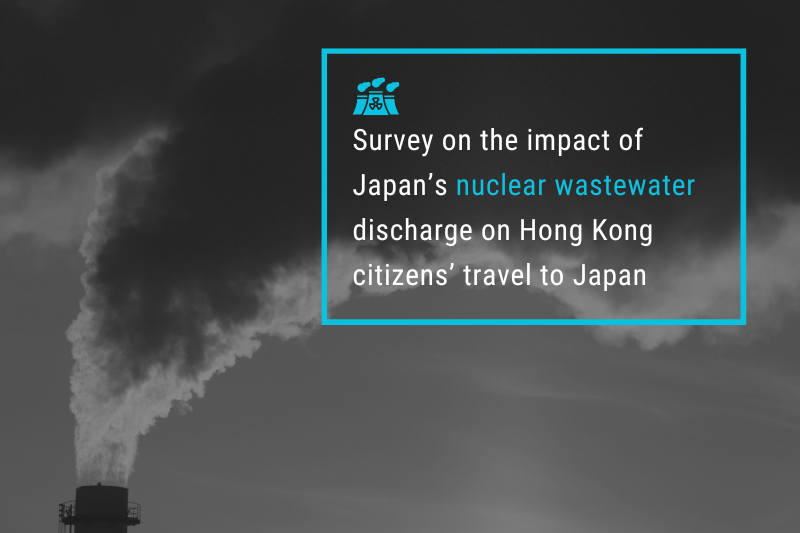
The Era of AI: How Persuasive is Artificial Intelligence as Compared to Humans?
26 January 2024
One-fourth of Hongkongers deterred from visiting Japan amid nuclear water concerns: survey
18 February 2024Impact of Japan’s Nuclear Wastewater Discharge on Hong Kong Citizens’ Travel to Japan

Principal investigator: Prof Christine HUANG Yi-hui (Department of Media and Communication)
 Professor Christine HUANG Yi-hui, Chair Professor in the Department of Media and Communication (COM) in the College of Liberal Arts and Social Sciences of City University of Hong Kong (CityU), and her research team conducted a survey from October to December 2023 to investigate Hong Kong citizens’ views on the perceived risks of nuclear wastewater discharge from the Fukushima nuclear power plant in Japan and their attitude towards travelling to Japan and purchasing Japanese products.
Professor Christine HUANG Yi-hui, Chair Professor in the Department of Media and Communication (COM) in the College of Liberal Arts and Social Sciences of City University of Hong Kong (CityU), and her research team conducted a survey from October to December 2023 to investigate Hong Kong citizens’ views on the perceived risks of nuclear wastewater discharge from the Fukushima nuclear power plant in Japan and their attitude towards travelling to Japan and purchasing Japanese products.
Since 24 August 2023, Japan has been releasing nuclear wastewater into the Pacific Ocean, arousing concern around the globe. Consequently, the Hong Kong government implemented import control measures, banning food imports from 10 prefectures, including Fukushima. As border restrictions in Japan have been lifted, the number of visitors is rising. Six of the top 10 preferred destinations for Hong Kong travellers last year were in Japan. In light of this, the research team sought to inquire whether the discharge of nuclear wastewater in Japan had affected Hong Kong citizens’ willingness to visit the country.
The research team surveyed 1,418 Hong Kong citizens aged 20 and above through an online questionnaire. Conclusions were drawn in three key areas: health risk perception, preventive measures, and attitudes towards the existing policies.
In terms of health risk perception, 60.4% of the respondents were concerned that the discharge of nuclear wastewater from the Fukushima nuclear power plant would adversely affect their health, increasing the risk of disease. The survey also showed a significant correlation between gender, age and perceived health risk, as 64.3% of female respondents perceived a higher health risk in response to the event, while 55.5% of male respondents felt the same. Over 60% of respondents aged 50 or above acknowledged the related risks.
When asked about preventive measures, 52.8% of respondents were reluctant to consume food from the Fukushima region. However, only 25.7% of respondents indicated their intention to travel less to Japan or purchase fewer daily necessities from Japan. The survey found that 62.7% of respondents aged 50 or above were more inclined to avoid consuming food from the Fukushima region, 32.2% were less inclined to travel to Japan, and 26.6% would avoid purchasing and using daily necessities from Japan. In contrast, among respondents aged 20-29, only 38.1% said they would avoid consuming food from the Fukushima region, and only 10.2% intended to avoid purchasing and using daily necessities from Japan. Most of the respondents in this age group (76.9%) affirmed that they would not reduce their frequency of travel to Japan.
As for attitudes towards the existing policies, the survey found that 56.4% of the respondents supported the Hong Kong government’s import control measures, and 74.3% were in favour of the radiation-monitoring measures. The respondents thought that other measures would be more effective than import restrictions, namely comprehensive radiation-level testing of imported food from Japan, disclosure of the radiation test results for Japanese food samples, and monitoring radiation levels in both the local environment and for seafood.
“Although many respondents said they would avoid consuming food from the Fukushima region, we did not observe a significant decrease in their enthusiasm to travel to Japan or buy Japanese products,” said Professor Huang. “The survey also found that Hong Kong citizens consider various preventive behaviours, perceiving lower risk in other regions of Japan than in Fukushima.”
Considering the Hong Kong government’s measures in response to this event, most of the respondents believed that conducting radiation testing and sharing relevant data on a regular basis would help them more effectively mitigate the risks.
Professor Vincent WANG Xiaohui, Assistant Professor of COM, said, “The government should maintain regular monitoring, ensure transparency in sharing the data, and issue timely warnings in case of potential health risks.”
“The authorities should enhance public education efforts to raise public awareness of the radiation risks. Accurate scientific information will help citizens make informed decisions concerning these risks,” he added.
“Female respondents showed a higher perception of the potential health risks and greater concern about their daily lives and environmental safety. This perception of health risks was also influenced by age,” said Professor Nancy DAI Yue, Assistant Professor of COM.
She recommended that the government customise its communication messages about specific policies to accommodate different population groups. Providing targeted information and support would allow the government to effectively address the diverse concerns of Hong Kong residents.
The research team comprises COM faculty members, including Prof Chris SHEN Fei, Prof LIN Fen, Prof Crystal JIANG Li, Prof SUN Ye, Prof ZHANG Xinzhi, Prof Nancy DAI Yue, and Prof Vincent WANG Xiaohui, as well as PhD students including LIU Ruoheng, CAI Qinxian, Jennifer LAU, ZHANG Leyi, LIU Haodong, SUN Jie, JIA Wufan, and GAO Yiqian.
